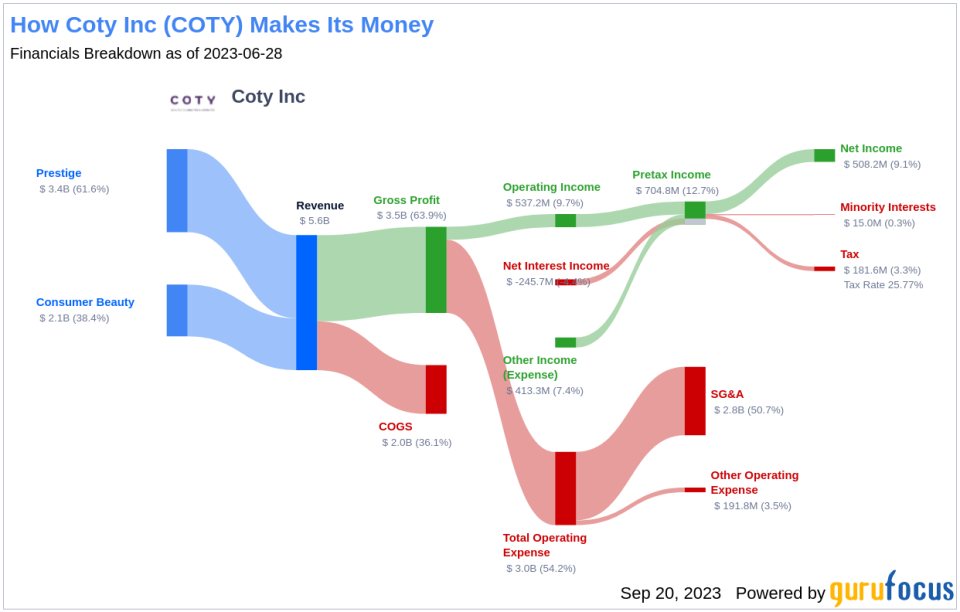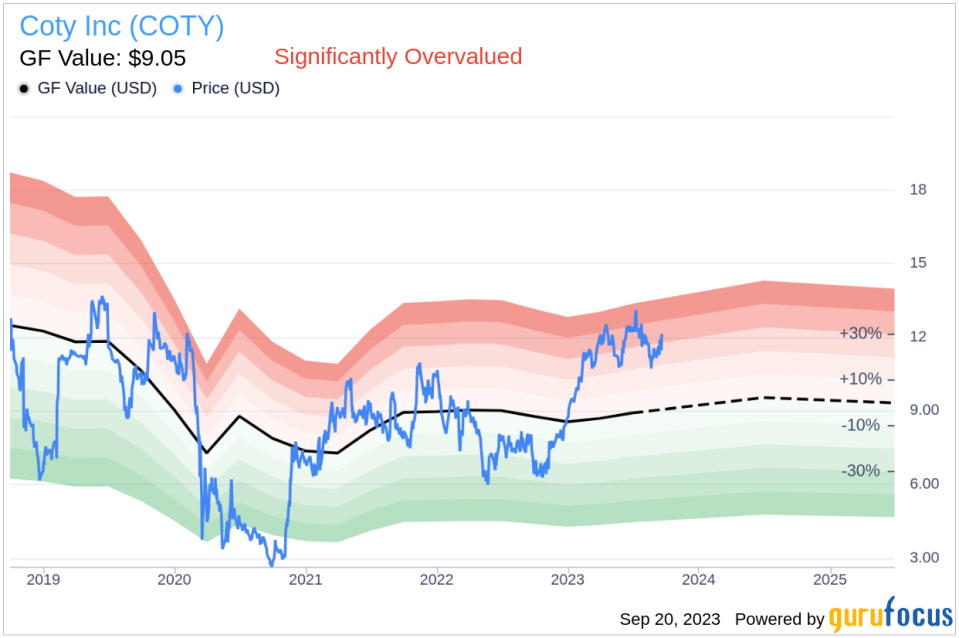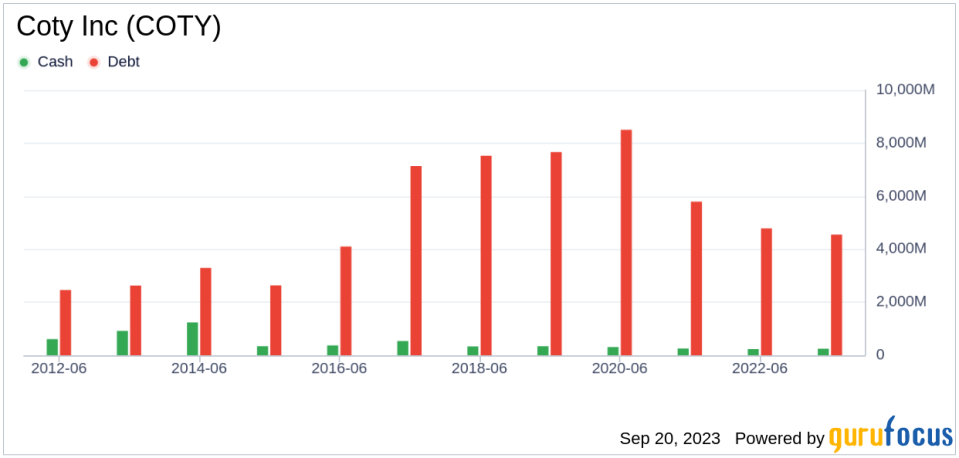Unveiling Coty (COTY)'s Value: Is It Really Priced Right? A Comprehensive Guide
In today's trading session, Coty Inc (NYSE:COTY) has shown a daily gain of 5.88%, contrasting with a slight 3-month loss of 0.82%. The company's Earnings Per Share (EPS) (EPS) stands at 0.57. But the critical question remains: is the stock significantly overvalued? This article attempts to answer this question through an in-depth analysis of Coty's valuation. Let's delve into the details.
Company Introduction
Coty Inc is a global beauty firm that sells fragrance, color cosmetics, and skin and body care. It licenses brands such as Calvin Klein, Hugo Boss, Gucci, Burberry, and Davidoff for its prestige portfolio. Coty's most popular color cosmetic brands are CoverGirl, Max Factor, Rimmel, Sally Hansen, and Kylie. With two reportable segments, Prestige and Consumer Beauty, the majority of its revenue comes from the Prestige segment. The company's stock price currently stands at $12.15, while the GF Value, an estimation of fair value, is at $9.05. This discrepancy calls for a closer look at the company's value.
Understanding GF Value
The GF Value represents the current intrinsic value of a stock derived from our exclusive method. It is calculated based on three factors: historical multiples (PE Ratio, PS Ratio, PB Ratio and Price-to-Free-Cash-Flow) that the stock has traded at, GuruFocus adjustment factor based on the company's past returns and growth, and future estimates of the business performance. The GF Value Line on our summary page gives an overview of the fair value that the stock should be traded at. If the stock price is significantly above the GF Value Line, it is overvalued and its future return is likely to be poor. On the other hand, if it is significantly below the GF Value Line, its future return will likely be higher.
According to GuruFocus' valuation method, Coty (NYSE:COTY) appears to be significantly overvalued. The stock's fair value is estimated based on historical multiples, an internal adjustment based on the company's past business growth, and analyst estimates of future business performance. At its current price of $12.15 per share, Coty has a market cap of $10.40 billion, indicating that the stock is significantly overvalued. As a result, the long-term return of its stock is likely to be much lower than its future business growth.
Link: These companies may deliver higher future returns at reduced risk.
Financial Strength
Before investing in a company, it's crucial to assess its financial strength. Companies with poor financial strength pose a higher risk of permanent loss. The cash-to-debt ratio and interest coverage can provide insights into a company's financial strength. Coty has a cash-to-debt ratio of 0.05, which is worse than 87.12% of 1801 companies in the Consumer Packaged Goods industry. Overall, Coty's financial strength is rated 4 out of 10, indicating poor financial health.
Profitability and Growth
Profitable companies, especially those with consistent profitability over the long term, pose less risk for investors. Coty has been profitable 4 over the past 10 years. Over the past twelve months, the company had a revenue of $5.60 billion and Earnings Per Share (EPS) of $0.57. Its operating margin is 9.67%, which ranks better than 72.65% of 1832 companies in the Consumer Packaged Goods industry. Overall, GuruFocus ranks the profitability of Coty at 4 out of 10, which indicates poor profitability.
Growth is a critical factor in the valuation of a company. If a company's business is growing, it usually creates value for its shareholders, especially if the growth is profitable. Conversely, if a company's revenue and earnings are declining, the value of the company will decrease. Coty's 3-year average revenue growth rate is worse than 71.32% of 1719 companies in the Consumer Packaged Goods industry. Coty's 3-year average EBITDA growth rate is 0%, which ranks worse than 0% of 1527 companies in the Consumer Packaged Goods industry.
ROIC vs WACC
One can also evaluate a company's profitability by comparing its return on invested capital (ROIC) to its weighted average cost of capital (WACC). Return on invested capital (ROIC) measures how well a company generates cash flow relative to the capital it has invested in its business. The weighted average cost of capital (WACC) is the rate that a company is expected to pay on average to all its security holders to finance its assets. If the return on invested capital exceeds the weighted average cost of capital, the company is likely creating value for its shareholders. During the past 12 months, Coty's ROIC is 3.72 while its WACC came in at 14.23.
Conclusion
In summary, the stock of Coty (NYSE:COTY) shows every sign of being significantly overvalued. The company's financial condition is poor and its profitability is poor. Its growth ranks worse than 0% of 1527 companies in the Consumer Packaged Goods industry. To learn more about Coty stock, you can check out its 30-Year Financials here.
To find out the high quality companies that may deliver above average returns, please check out GuruFocus High Quality Low Capex Screener.
This article first appeared on GuruFocus.




